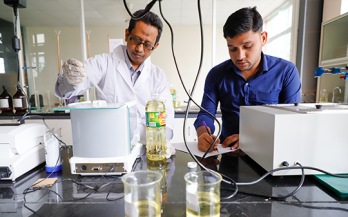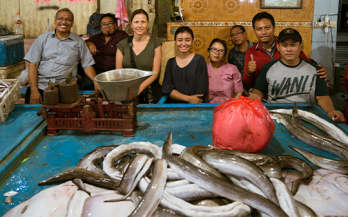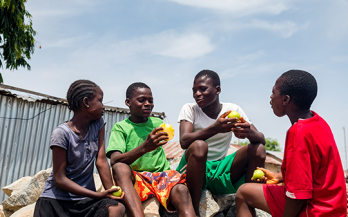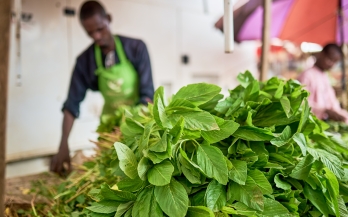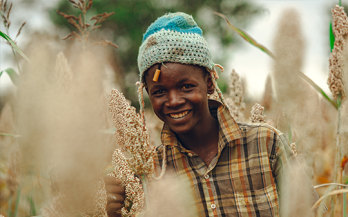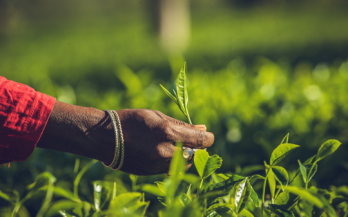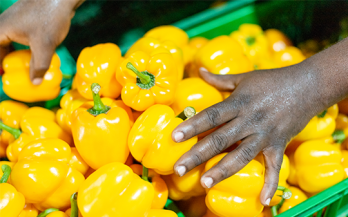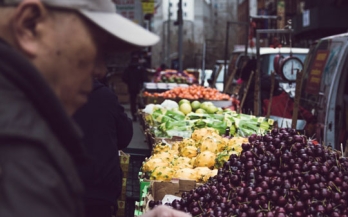- 09/01/2025
Personal sustainability is a relative concept of time, place, and identity. It shapes how “alternative” or “sustainable” are perceived. It is controversial in terms of agency, scale, and impact. Personal sustainability is transdisciplinary, encompassing food security, nutrition, livelihoods, health, culture, and environment. Food systems are systems upon systems where personal choices, practices, and habits around availability and access, consumption and waste to and of diverse (or less diverse), safe (or unsafe), healthy (or unhealthy) diets influence and are influenced by sustainability drivers like the socio-economic factors, climate change, institutions from government to small and big business, urbanization and culture. In turn, this impacts the wellbeing of people and the planet. Such dynamic within food systems is evident at the individual and household level, extending to small and medium-sized entities within developed and developing countries and formal and informal systems.
- 09/01/2025
Malnutrition is a major global challenge. Multiple forms, from underweight to obesity, exist, and several forms coexist within communities and households. Traditional food markets, also known as wet, local, or informal markets, are widespread in sub-Saharan Africa (SSA) and are a key place where people buy and sell food and socially interact, especially those vulnerable to malnutrition. As such they are vital to food and nutrition security. While it is recognized that gender is an important consideration in food and nutrition security, very little has been published in peer reviewed journals, with respect to gender and traditional food markets in SSA. This mini review aims to explore the nexus role of traditional food markets and gender in food and nutrition security. This study presents a narrative literature review, informed by literature identified in a systematic manner. Four databases were searched for key terms, including nutrition, different forms of malnutrition, gender, traditional food markets, and vendors. The papers provided insight into two main topics pertaining to the role of traditional food market practices, gender, and food and nutrition security. While few papers were identified in this mini review, they illustrated insightful nuances into traditional food markets, gender, and food and nutrition security. There is a need for explicitly framed gender studies that can better inform the limited existing knowledge of the experiences of gender and nutritional security of women and men in traditional food markets in SSA.
- 09/01/2025
Hunger and malnutrition in all forms continues to rise in Africa and Asia. Urban and rural communities’ diets in Southeast Asia (SEA) are increasingly unhealthy, with consumption influenced by affordability and convenience. The cost of a healthy diet is a major barrier to accessing healthy foods in SEA. Wet markets are key places in food environments where people buy and sell a variety of foods. They are especially important for food and nutrition insecure communities. This mini narrative review explores the role that wet markets, in SEA food environments, play in providing local communities with access to healthy foods. Fourteen peer-review papers, published in English between 2017 and 2022, were identified during screening and analysed according to six food environment domains. Findings highlight that convenient access to wet markets facilitates access to fruits and vegetables in peri urban and urban areas. Fresh foods, most notably fruits, were viewed as being more expensive than processed foods which in turn influenced purchasing behavior. Divergent findings were presented in the identified papers regarding affordability of food in wet markets. Concerns about food quality and the use of chemicals and pesticides were raised. This review was constrained by several factors including the lack of consistent and meaningful definitions and typologies of the varied forms of wet markets. Looking ahead, better defined interpretations of wet markets can enhance the development and refinement of appropriate policies and actions and comparison of wet markets, in respect of access to diverse, healthy foods, vendor practices and consumer food choices.
- 08/01/2025
Traditional food markets in sub-Saharan Africa (SSA) are pivotal urban spaces, especially for vulnerable populations. These markets are vibrant hubs for commerce, cultural exchange, and social interaction, yet they face challenges such as food safety issues, inadequate infrastructure, and regulation that is a complex mix of informal mechanisms in need of a balanced degree of formalization. Rapid urbanization in SSA and the vulnerabilities of informal settlements underline their enduring importance. The COVID-19 pandemic further highlighted their crucial role in promoting food access, supporting local economies, and preserving social connections during crises. However, a comprehensive understanding of their multifaceted impact on urban life remains limited. This study provides a systematic narrative literature review with the aims of mapping the existing literature and evaluating their complex impact on vulnerable communities. The review employed a systematic search strategy, encompassing research studies and gray literature. It highlights the geographic distribution of studies across SSA, with a concentration in East and Southern Africa.
- 12/08/2024
Climate change is a threat to the sustainability of global and national food systems. Unsustainable food systems cannot ensure food and nutrition security or healthy eating patterns. Climate change is already altering agricultural production, food processing, distribution, and conSumption. Its impacts disrupt food supply, limiting people’s access to the diverse, safe, and nutritious foods that make up high-quality diets.
- 12/02/2024
The Kenya Food Systems Dashboard, unveiled in February 2024 and managed by the Ministry of Agriculture and Livestock Development, brings together much-needed data to support this food systems transformation. It includes an overview of Kenya’s food system, offering valuable insights into both opportunities and challenges.
- 28/11/2023
A strategy to catalyse a global food systems transformation for people, planet and prosperity using cities as entry points.
- 25/08/2023
The 2021 UN Food System Summit led to strategic pathways for food system transformation in countries, supported by an Ecosystem of Support (EoS).
This analysis evaluates transformation progress, suggests principles for effective EoS functioning, and emphasizes flexibility while respecting national leadership and promoting collaboration, inclusivity, and transparency and decision-making in advancing food system goals.
- 03/11/2022
The global food system is experiencing the worst crisis in history. Unlike the food price crisis of 2007-8, in 2022 there is a convergence of multiple crises. Hunger and malnutrition have soared in the wake of the coronavirus pandemic (COVID-19).
- 23/02/2022
This paper responds to the need to better understand the interaction between gender norms and urban food systems in low- and middle-income countries. More people are living in cities than ever before. As a result, the role played by urban food systems is of growing importance at both the population level and for individuals, especially women, who are considered responsible for meal provision in most cultures.
